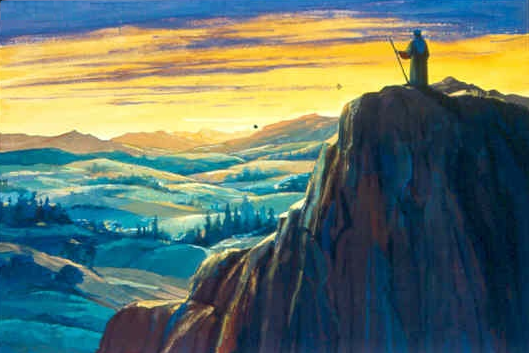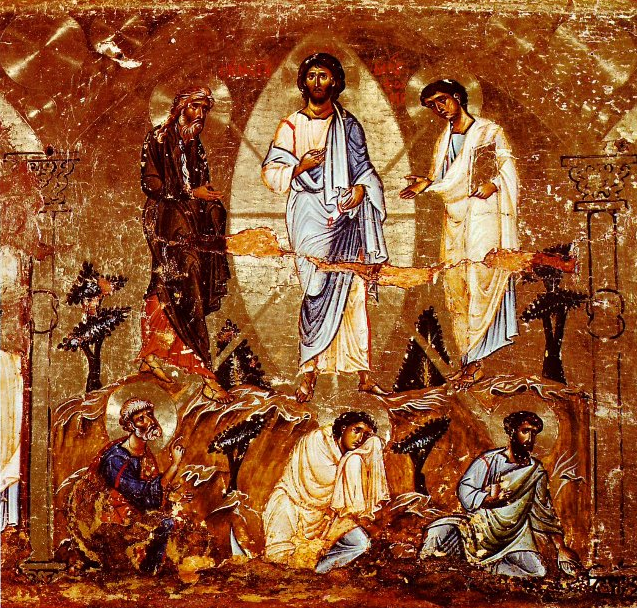
Editor’s note: The following comprises the fourth chapter, fourth part (D4), of The Gospel of Luke: An Exposition, by Charles R. Erdman (published 1936). All spelling in the original.
4. The Transfiguration (9:28-36)
___________________________________________________
28 And it came to pass about eight days after these sayings, that He took with him Peter and John and James, and went up into the mountain to pray. 29 And as He was praying, the fashion of His countenance was altered, and His raiment became white and dazzling. 30 And behold, there talked with Him two men, who were Moses and Elijah; 31 who appeared in glory, and spake of His decease which He was about to accomplish at Jerusalem. 32 Now Peter and they that were with him were heavy with sleep: but when they were fully awake, they saw His glory, and the two men that stood with Him. 33 And it came to pass, as they were parting from Him, Peter said unto Jesus, Master, it is good for us to be here: and let us make three tabernacles; one for thee, and one for Moses, and one for Elijah: not knowing what he said. 34 And while he said these things, there came a cloud, and overshadowed them: and they feared as they entered into the cloud. 35 And a voice came out of the cloud, saying, This is my Son, my chosen: hear ye Him. 36 And when the voice came, Jesus was found alone. And they held their peace, and told no man in those days any of the things which they had seen.
___________________________________________________
The transfiguration of Christ was closely associated with the predictions both of His death and of His return in glory. It prepared Him and also His disciples for the former and it was a symbol and a foretaste of the latter. Just what the physical experience may have been, it is difficult to conjecture. It was not like that of Moses on Mount Sinai when his face glowed with reflected light. In the case of Jesus the glory was from within. A divine splendor shone forth irradiating the body and even the garments of our Lord.
Luke tells us that this occurred as Jesus was praying; and it is more than a mere figure of speech to say that when in prayer His followers find, in some measure, what it is to be transfigured into His likeness from one degree of glory to another by the power of His indwelling Spirit.
Jesus had been accompanied on the mountain top by only Peter, James, and John; but suddenly “There talked with Him two men, who were Moses and Elijah; who appeared in glory, and spake of His decease which he was about to accomplish at Jerusalem.” This, then, was the high purpose of the event; it was to interpret to the mind of Christ more perfectly the meaning of His death, and to encourage Him to endure its anguish by this glimpse of the glory that would follow. It is easy to understand why Moses and Elijah should be selected for so august a conference. One had been regarded as the symbol of law and the other of prophecy, and both law and prophecy pointed forward to Calvary; and again both Moses and Elijah had received a special revelation of the grace of God, and He was to manifest His grace supremely in the death of His Son.
It is not strange that Peter longed to linger in such heavenly companionship, and in bewilderment absurdly proposed the erection on the mountain of three booths for the comfort of Jesus, Moses, and Elijah. “While he said these things, there came a cloud, and overshadowed them: … and a voice came out of the cloud, saying, This is my Son, my chosen: hear ye Him.” There was no need of detaining Moses and Elijah; if the Master remained with His disciples, that was enough. Henceforth all that the Law and the Prophets had foreshadowed would be completely revealed and embodied in Jesus Christ. Part of that revelation was made in His death; the full revelation will come when He returns in that glory of which the Mount of Transfiguration gave a foregleam.
(Go back to previous chapter)
(Continue to next chapter)

The Gospel of Luke: An Exposition (Luke 9:28-36)
Latest from Religion

The Weimar Years – Part 1
This started out as an attempt to better understand Weimar Germany by chronicling my reactions to the audiobook version of “The Weimar Years: Rise and Fall 1918-1933” by Frank McDonough. Writing my
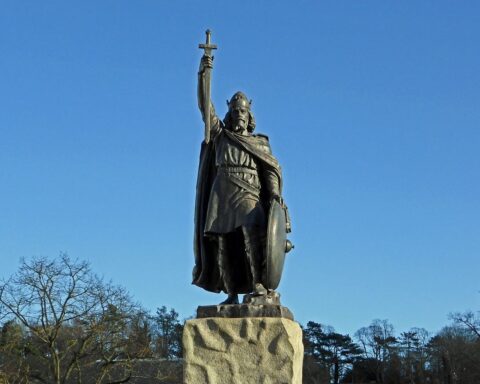
Alfredus Rex Fundator
"Alfred was a Christian hero, and in his Christianity he found the force which bore him, through calamity apparently hopeless, to victory and happiness."
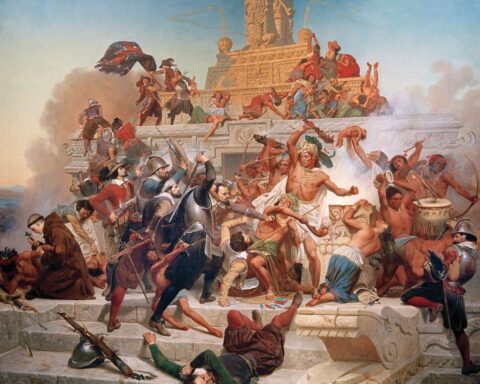
The Story of Cortez
It seemed to me that, having to speak tonight to soldiers, that I ought to speak about soldiers. Some story, I thought, about your own profession would please you most and teach
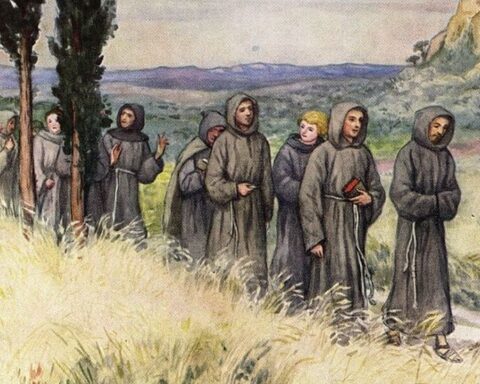
The Coming of the Friars
When King Richard of England, whom men call the Lion-hearted, was wasting his time at Messina, after his boisterous fashion, in the winter of 1190, he heard of the fame of Abbot
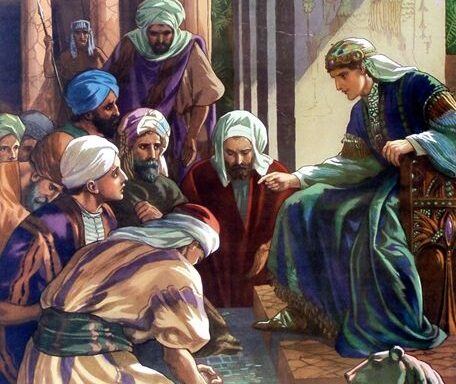
“Joseph” by Charles Kingsley
Editor’s note: The following is extracted from The Works of Charles Kingsley, Vol. 25 (published 1885). (Preached on the Sunday before the Wedding of the Prince of Wales. March 8th, third Sunday


